BACK TO finale_winnerS
Honorary Mention: Interior Design Category
HomeSEED
HomeSEED: A Holistic Approach to Homelessness Located in the heart of Georgetown, Penang, HomeSEED is not just a shelter—it’s a transformative space where lives are rebuilt. Amidst the rapid urbanization and rising housing costs, HomeSEED provides a solution that offers more than just a roof over the heads of the homeless. It’s a space where […]

HomeSEED: A Holistic Approach to Homelessness
Located in the heart of Georgetown, Penang, HomeSEED is not just a shelter—it’s a transformative space where lives are rebuilt. Amidst the rapid urbanization and rising housing costs, HomeSEED provides a solution that offers more than just a roof over the heads of the homeless. It’s a space where individuals are given the resources, training, and community support needed to break free from the cycle of poverty. At its core, HomeSEED is a homeless resilience training center, focusing on human dignity and empowerment. This design approach ensures that the homeless have the opportunity to heal, grow, and regain their place in society, offering a foundation for holistic well-being.
VitalShell: A Mobile Shelter and Empowerment Tool
A key element of HomeSEED is VitalShell, a portable shelter that serves both as a place to rest and a tool for self-sufficiency. Unlike traditional shelters, VitalShell is designed to give individuals mobility, security, and independence.
VitalShell consists of two parts:
The VitalShell promotes flexibility, giving its users a sense of ownership and independence, empowering them to move freely and engage with society on their own terms.
Category 1 Resources: Reclaiming Stability and Dignity
The journey at HomeSEED begins with establishing security. The Serenity Shelter offers open-air rooms arranged by gender, with designated ‘parking spots’ for the VitalShell. This design creates an organized and safe space, offering a sense of routine and stability. It allows individuals to reclaim their dignity, providing a sense of belonging and a place to return to each night.
The Harvest Sharing Kitchen fosters a sense of community by allowing individuals to cook and share meals together. This communal space helps form strong social bonds, offering a family-like atmosphere that many residents may have been missing.
The Gathering Pavilion, designed with a warm, woody ambiance, is a flexible space used for light exercises, meditation, and group activities. It plays a crucial role in building community, ensuring that individuals start their day with energy and motivation.
Category 2 Training: Cultivating Skills for Self-Sufficiency
Empowerment is rooted in skill-building. The Indoor Plantation provides hands-on training in sustainable farming, allowing individuals to grow their own food. Using eco-friendly techniques and rainwater harvesting systems, this space teaches important skills that can lead to financial independence.
The Recreational Studio focuses on upcycling, where residents transform reclaimed materials into valuable products. This space also offers traditional craft workshops, such as woven rattan and Nyonya beadwork, reflecting Georgetown’s rich cultural heritage. By learning these skills, individuals gain both creative outlets and practical tools for economic independence.
Category 3 Marketplace: Platforms for Economic Empowerment
Economic independence is a core goal of HomeSEED. The Farmers’ Market provides a platform for residents to sell the produce they have grown. It’s an opportunity for them to showcase their hard work, turning them into entrepreneurs while fostering direct interaction with the community.
The Upcycling Flea Market, located on the mezzanine floor, offers a space where residents sell products made from upcycled materials. Each booth is constructed from VitalShell, which not only serves as a functional shelter but as a display space for handcrafted items. This market creates an environment of collaboration, where local artists and tourists connect, promoting cultural exchange and economic growth.
Category 4 Caring: Healing the Whole Person
The Medical and Counseling Center addresses the physical and mental health needs of residents, ensuring they receive the care necessary for recovery. This space provides essential support, addressing both visible and invisible wounds, and helps individuals rebuild their sense of well-being.
Design for Sustainability
Sustainability is fundamental to HomeSEED’s design. The interiors feature reclaimed materials, such as wood, recycled bricks, and raw tiles, promoting eco-friendly practices. Passive cooling systems, rainwater collection, and solar energy integration ensure the space remains energy-efficient, even in Georgetown’s tropical climate.
Conclusion: A Space for Growth and Empowerment
HomeSEED is more than just a shelter—it is a platform for personal growth. The design focuses on providing resources, skills, and a sense of belonging, helping individuals reclaim their dignity and independence. Through its innovative approach, HomeSEED not only addresses homelessness but empowers individuals to take control of their lives.
By offering a blend of security, skill-building, and community engagement, HomeSEED redefines what it means to be ‘home.’ It demonstrates how thoughtful interior design can foster dignity, create opportunity, and help individuals rediscover their place in the world.
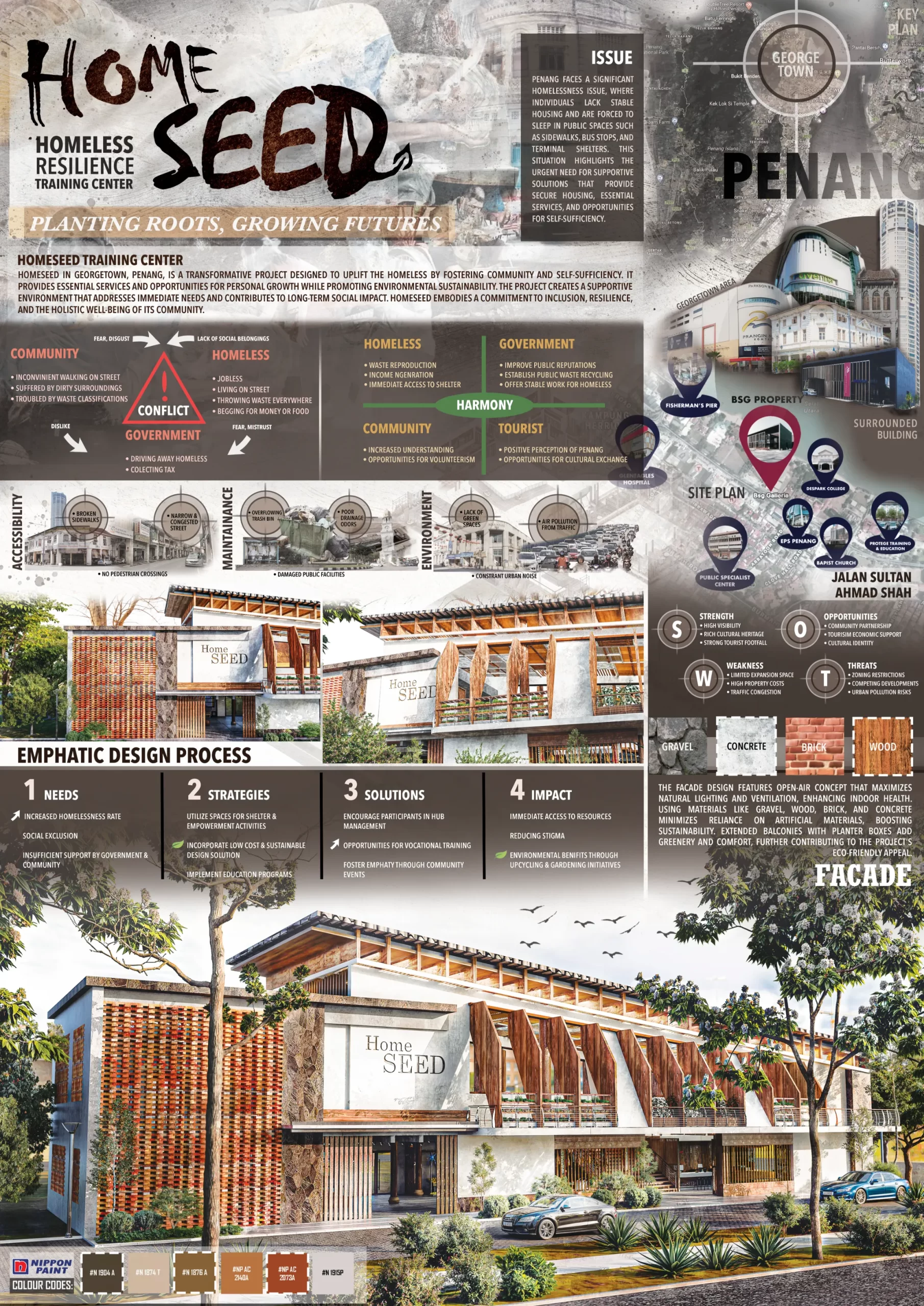
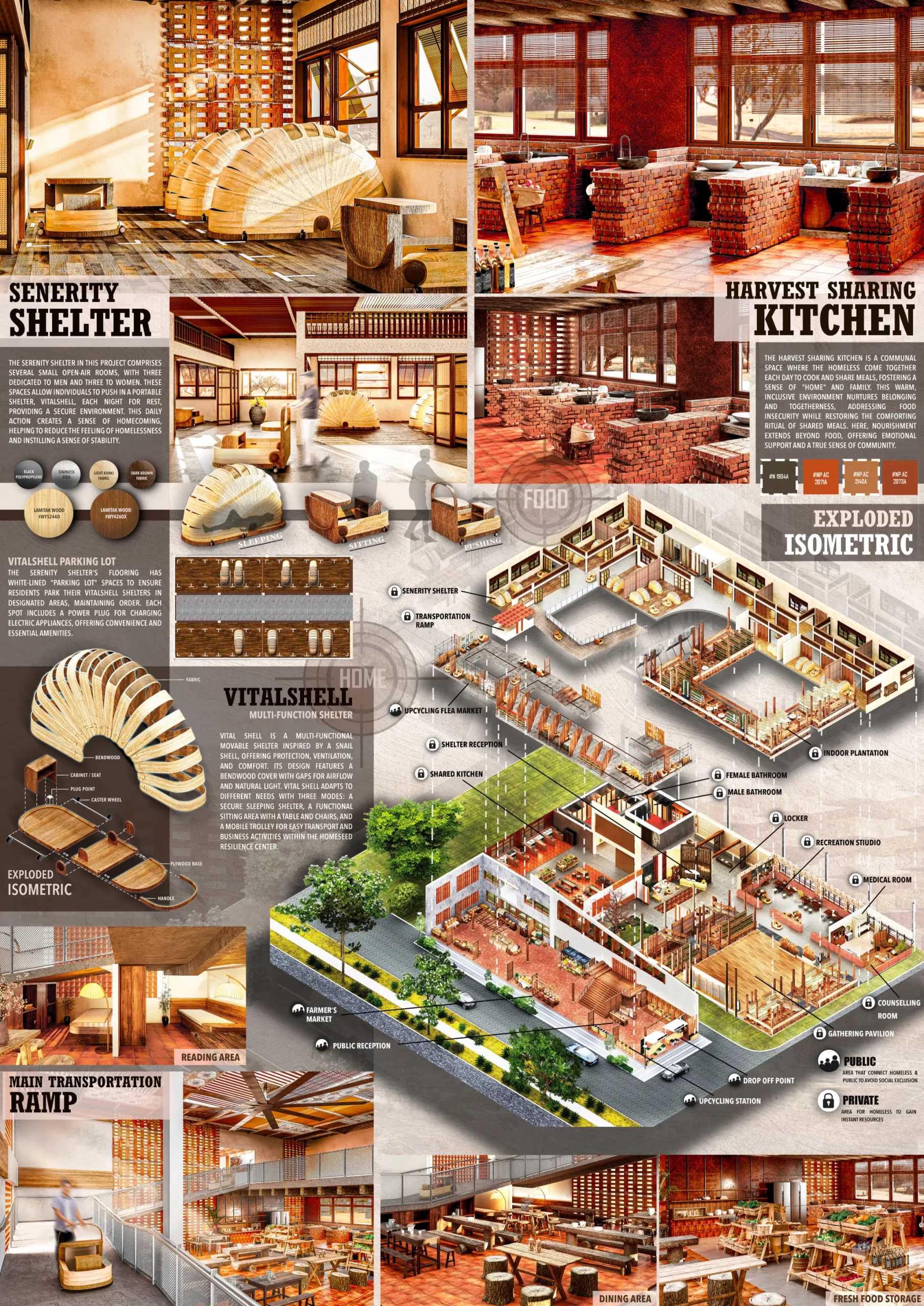
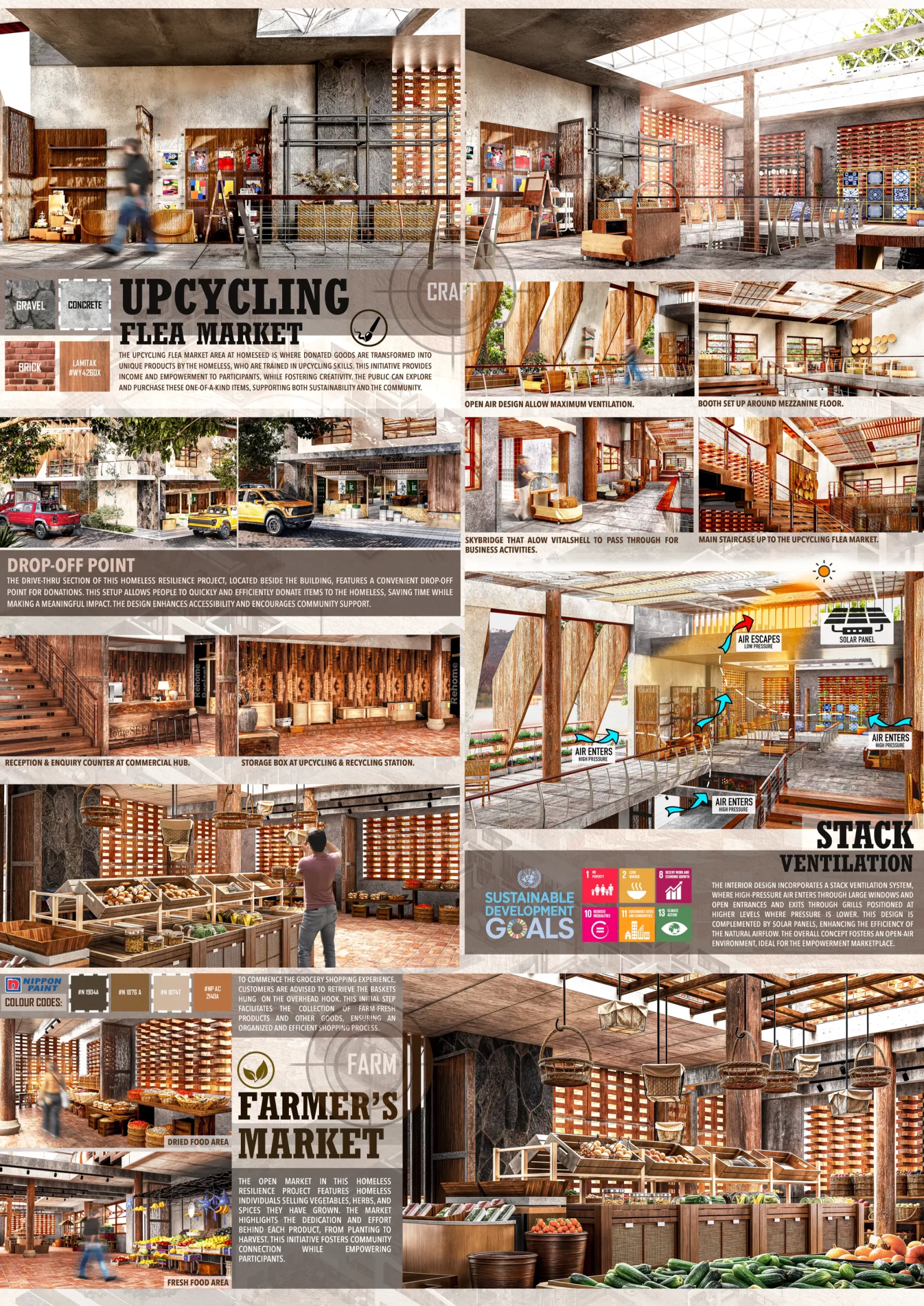
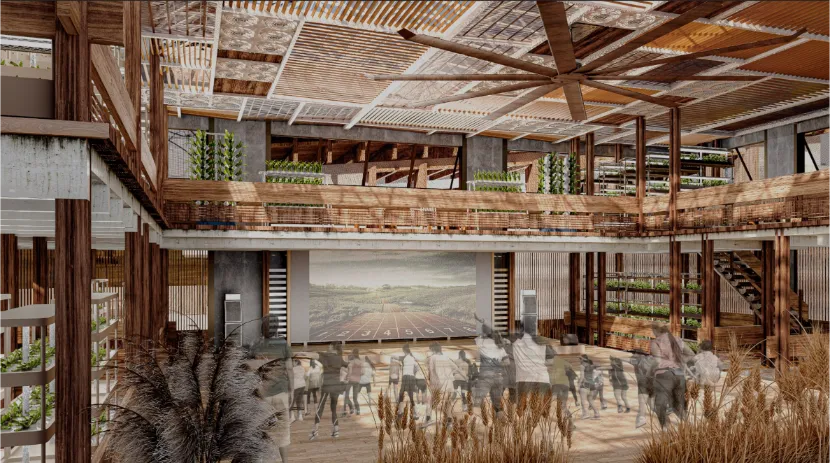
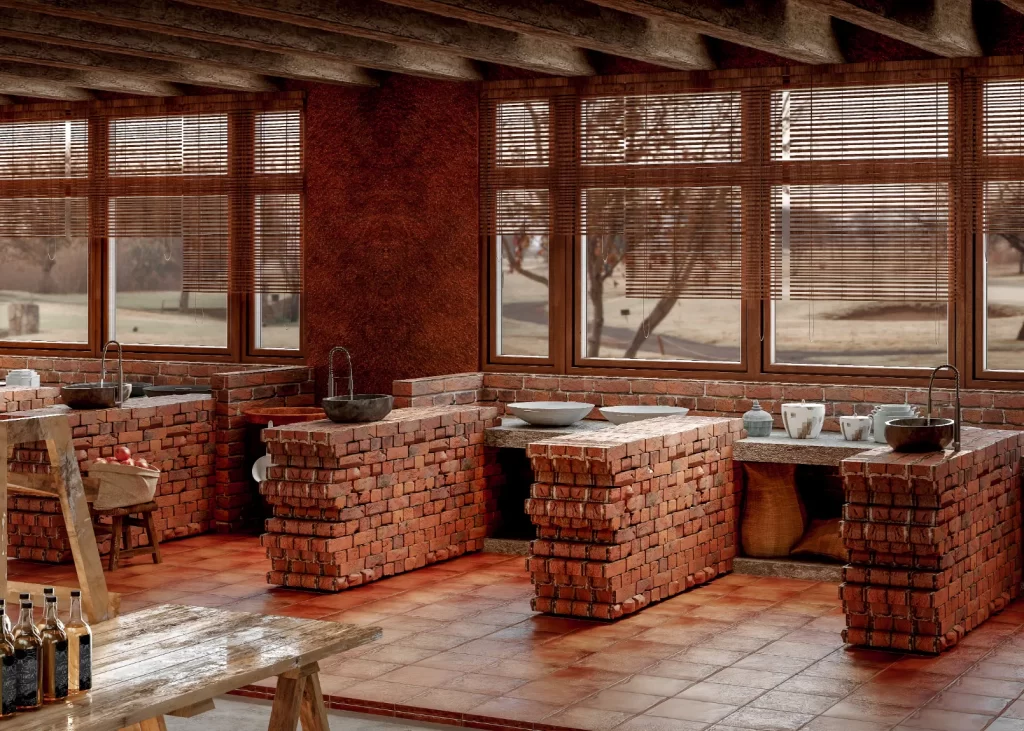
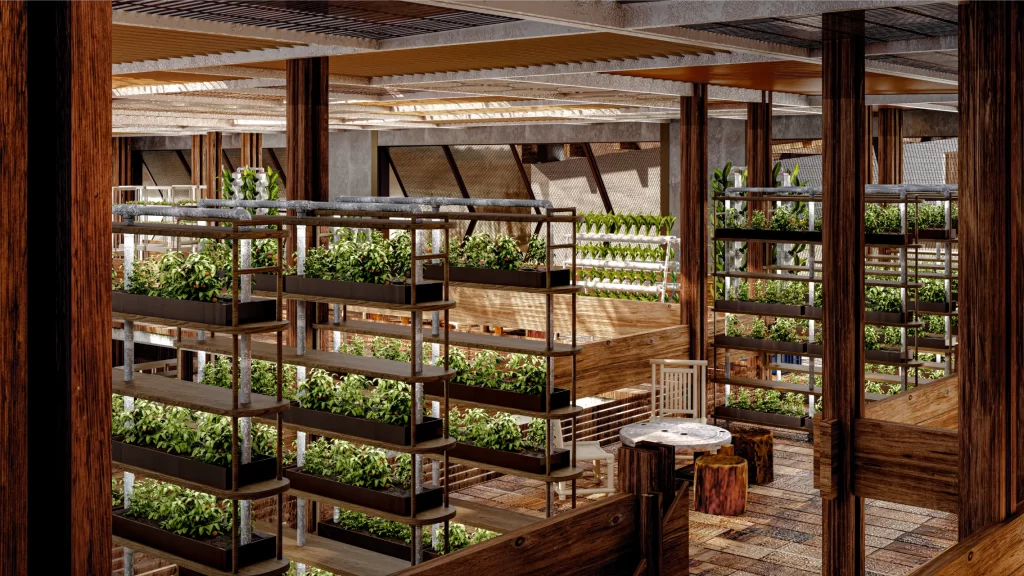
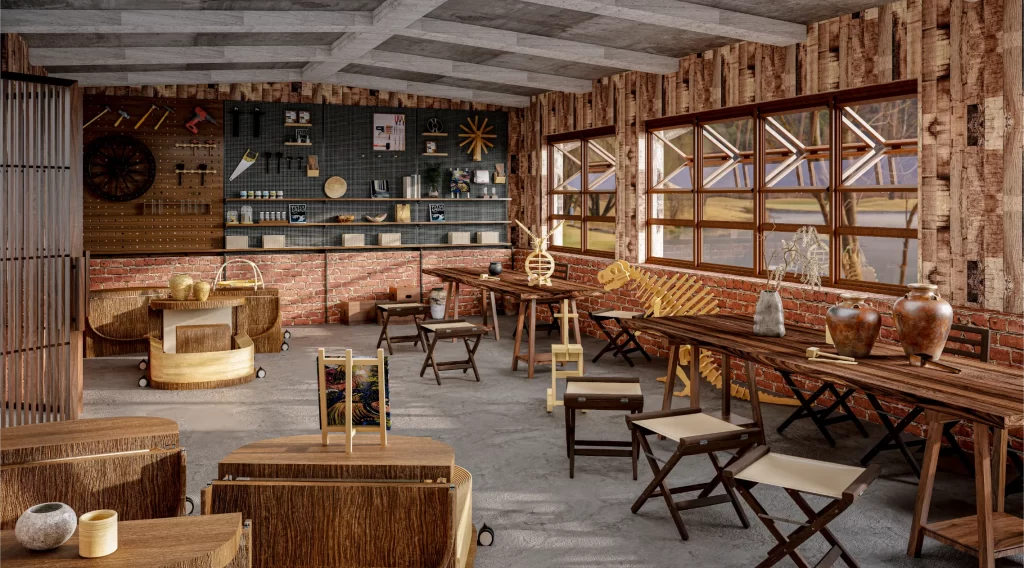
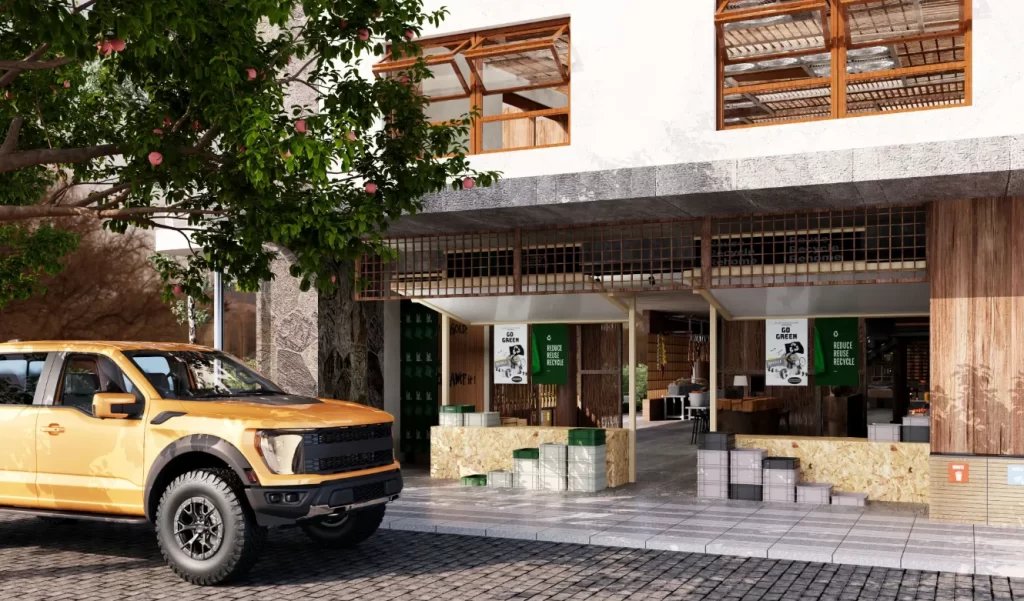
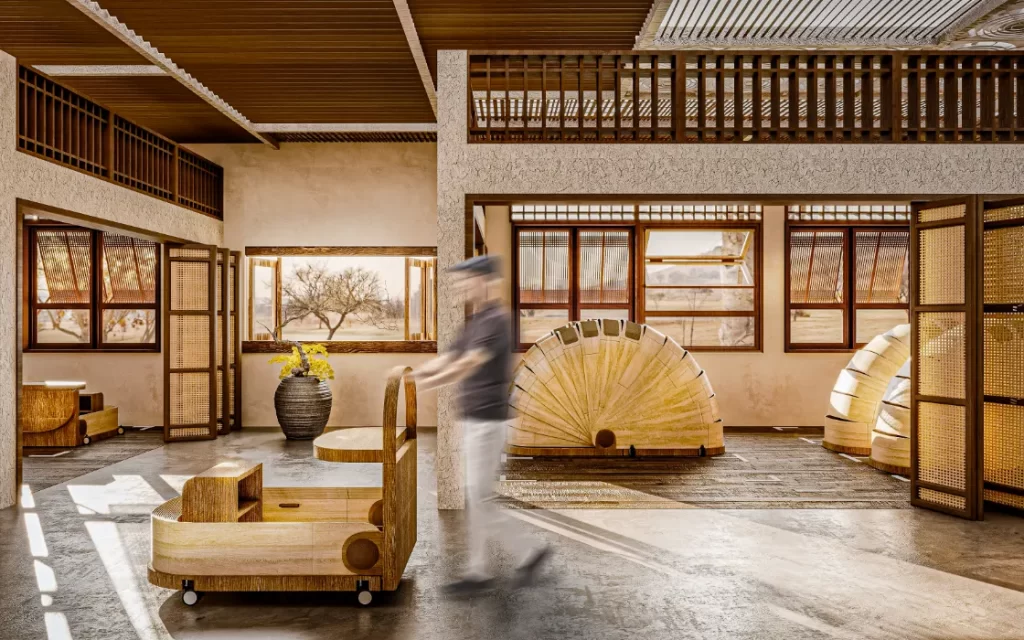
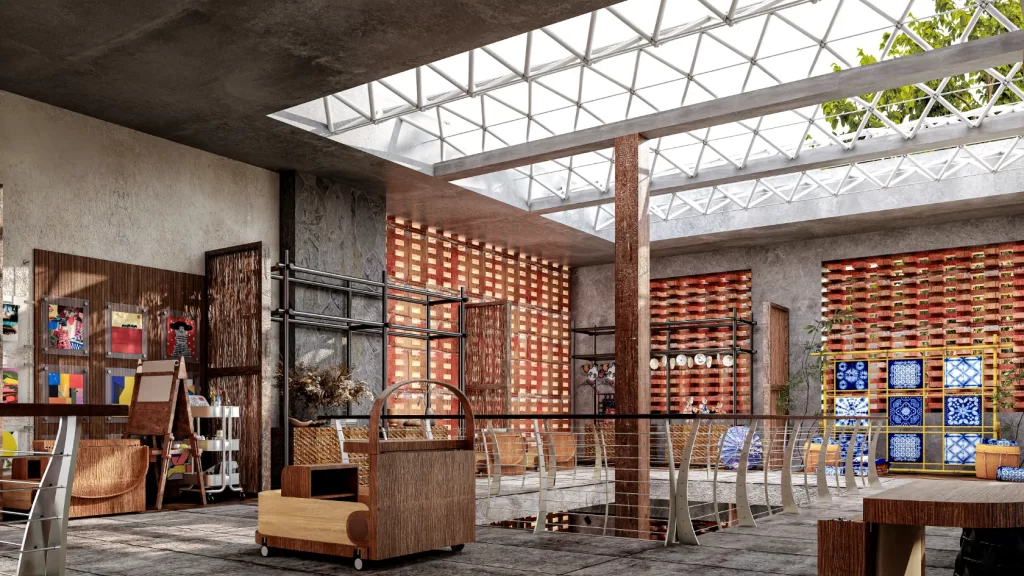
Showcase your design to an international audience
SUBMIT NOW
Image: Agrapolis Urban Permaculture Farm by David Johanes Palar
Top
HomeSEED: A Holistic Approach to Homelessness Located in the heart of Georgetown, Penang, HomeSEED is not just a shelter—it’s a transformative space where lives are rebuilt. Amidst the rapid urbanization and rising housing costs, HomeSEED provides a solution that offers more than just a roof over the heads of the homeless. It’s a space where individuals are given the resources, training, and community support needed to break free from the cycle of poverty. At its core, HomeSEED is a homeless resilience training center, focusing on human dignity and empowerment. This design approach ensures that the homeless have the opportunity to heal, grow, and regain their place in society, offering a foundation for holistic well-being. VitalShell: A Mobile Shelter and Empowerment Tool A key element of HomeSEED is VitalShell, a portable shelter that serves both as a place to rest and a tool for self-sufficiency. Unlike traditional shelters, VitalShell is designed to give individuals mobility, security, and independence. The VitalShell promotes flexibility, giving its users a sense of ownership and independence, empowering them to move freely and engage with society on their own terms. Category 1 Resources: Reclaiming Stability and Dignity The journey at HomeSEED begins with establishing security. The Serenity Shelter offers open-air rooms arranged by gender, with designated ‘parking spots’ for the VitalShell. This design creates an organized and safe space, offering a sense of routine and stability. It allows individuals to reclaim their dignity, providing a sense of belonging and a place to return to each night. Category 2 Training: Cultivating Skills for Self-Sufficiency Empowerment is rooted in skill-building. The Indoor Plantation provides hands-on training in sustainable farming, allowing individuals to grow their own food. Using eco-friendly techniques and rainwater harvesting systems, this space teaches important skills that can lead to financial independence. Category 3 Marketplace: Platforms for Economic Empowerment Economic independence is a core goal of HomeSEED. The Farmers’ Market provides a platform for residents to sell the produce they have grown. It’s an opportunity for them to showcase their hard work, turning them into entrepreneurs while fostering direct interaction with the community. Category 4 Caring: Healing the Whole Person The Medical and Counseling Center addresses the physical and mental health needs of residents, ensuring they receive the care necessary for recovery. This space provides essential support, addressing both visible and invisible wounds, and helps individuals rebuild their sense of well-being. Design for Sustainability Sustainability is fundamental to HomeSEED’s design. The interiors feature reclaimed materials, such as wood, recycled bricks, and raw tiles, promoting eco-friendly practices. Passive cooling systems, rainwater collection, and solar energy integration ensure the space remains energy-efficient, even in Georgetown’s tropical climate. Conclusion: A Space for Growth and Empowerment HomeSEED is more than just a shelter—it is a platform for personal growth. The design focuses on providing resources, skills, and a sense of belonging, helping individuals reclaim their dignity and independence. Through its innovative approach, HomeSEED not only addresses homelessness but empowers individuals to take control of their lives.
VitalShell consists of two parts:
component transforms into a trolley for movement. During the day, it can be used as seating,
allowing individuals to rest, work, or sell products, helping them earn an income.
The Harvest Sharing Kitchen fosters a sense of community by allowing individuals to cook and share meals together. This communal space helps form strong social bonds, offering a family-like atmosphere that many residents may have been missing.
The Gathering Pavilion, designed with a warm, woody ambiance, is a flexible space used for light exercises, meditation, and group activities. It plays a crucial role in building community, ensuring that individuals start their day with energy and motivation.
The Recreational Studio focuses on upcycling, where residents transform reclaimed materials into valuable products. This space also offers traditional craft workshops, such as woven rattan and Nyonya beadwork, reflecting Georgetown’s rich cultural heritage. By learning these skills, individuals gain both creative outlets and practical tools for economic independence.
The Upcycling Flea Market, located on the mezzanine floor, offers a space where residents sell products made from upcycled materials. Each booth is constructed from VitalShell, which not only serves as a functional shelter but as a display space for handcrafted items. This market creates an environment of collaboration, where local artists and tourists connect, promoting cultural exchange and economic growth.
By offering a blend of security, skill-building, and community engagement, HomeSEED redefines what it means to be ‘home.’ It demonstrates how thoughtful interior design can foster dignity, create opportunity, and help individuals rediscover their place in the world.









